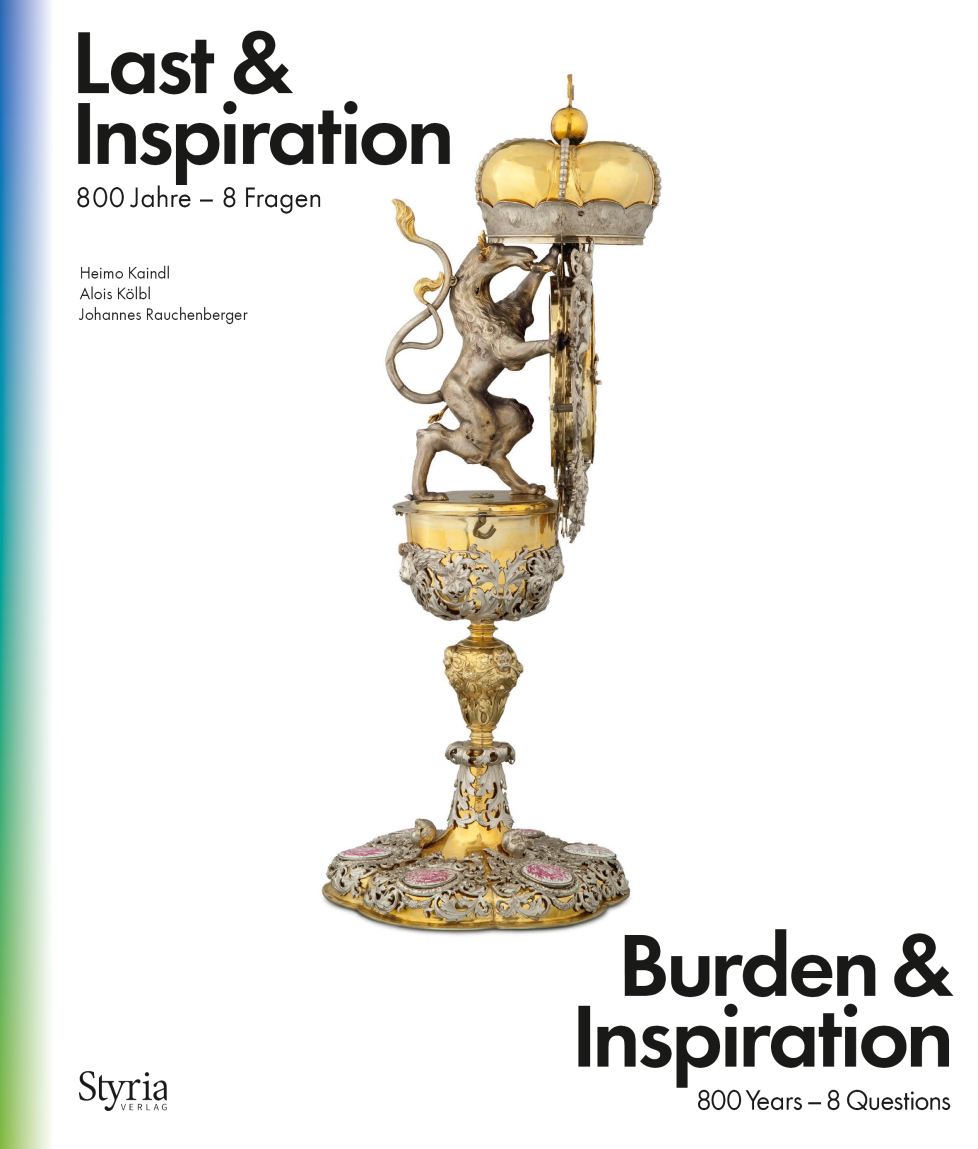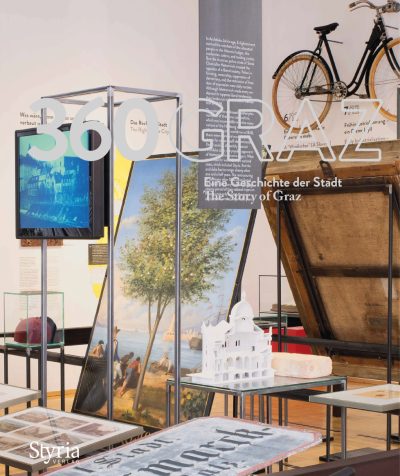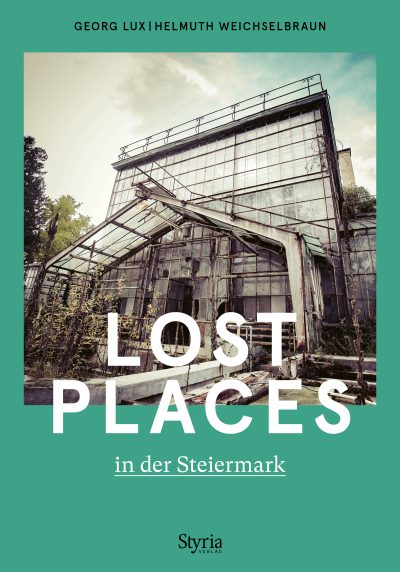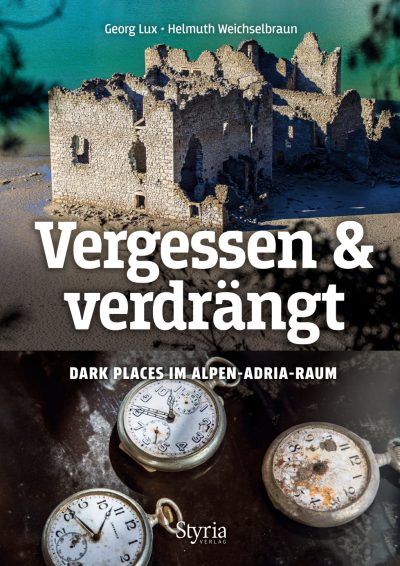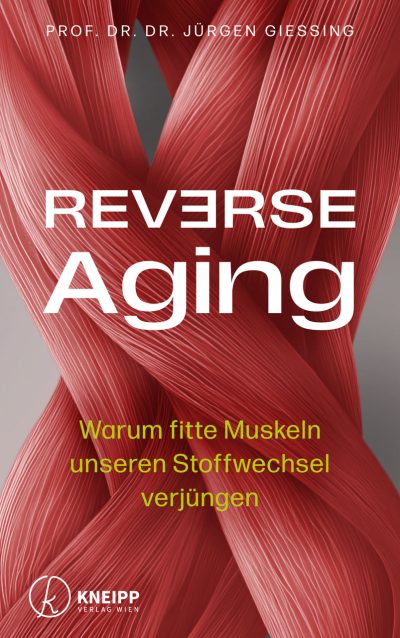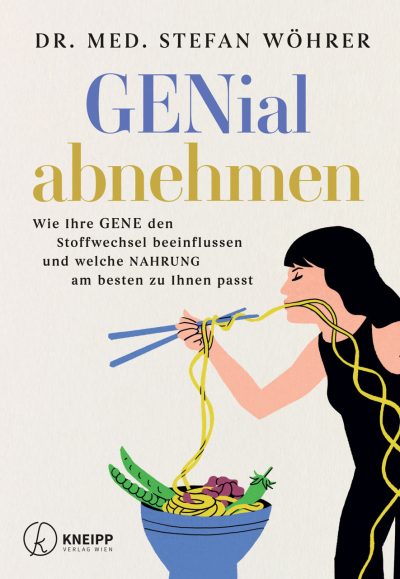Details
Styria Verlag
Broschur
Format: 20.0 x 23.5 cm
Seiten: 386
ISBN: 978-3-222-13619-1
Erscheinungstermin: 2018-09-28
Downloads & Pressematerial
Last & Inspiration / Burden & Inspiration
800 Jahre – 8 Fragen / 800 Years – 8 Questions
Beschreibung
Last &, Inspiration: Mit acht Fragen werden in den Ausstellungen zu „800 Jahre Diözese Graz-Seckau“ die Religions- und Kulturgeschichte der Steiermark betrachtet. Die historisch starken Orte, wie Dom, Priesterseminar und Mausoleum, die ehem. Bischofsburg Seggau und der viele Jahrhunderte als Kathedrale dienende „Dom im Gebirge“ in Seckau sind dabei selbst zentrale „Ausstellungsobjekte“. Es geht dabei um Themen von Macht und rechter Religion, um Grenzen, Öffnung und Heimat. Es geht um Angst, Glaube und Wunder mit den Bildern des Glaubens. Und es geht um immer wieder neue Aufbrüche und Neuanfänge, die sich in der Schönheit einer 1000-jährigen Sakralkunst widerspiegeln. Ihre Bauten und Bilder sind einfach da, auch wenn wir ihre Botschaft längst nicht mehr kennen. Sie prägen unsere Vorstellung von Herkunft, Glauben und unserem Zusammenleben auch heute mit. Was davon ist Last, was aber ist Inspiration für die Zukunft? Und was wollen wir davon als Erbe weitergeben? Historische Schnittstellen werden beleuchtet und mit Fragen der Zukunft verknüpft. Gegenwartskunst macht Glaubenserzählungen und starke historische Orte neu sichtbar.
The historically powerful places, such as Graz Cathedral, the Priest Seminary and the Mausoleum, the former episcopal castle in Seggau and the »Cathedral in the Mountains« in Seckau, which served as the cathedral for many centuries, are themselves central »exhibits«. It is about themes of power and the right religion, about borders, openness and home. It is about fear, faith and miracles with the images of faith. And it is about new departures and new beginnings time and time again, which are reflected in the beauty of 1,000-year old sacred art. Its buildings and pictures are simply there, even if we only partially know their message. They still shape our idea of origin, faith and our coexistence today. What of this is burden? And what is inspiration for the future? And what do we want to pass on as heritage? Historical interfaces are highlighted and linked with questions of the future. Contemporary art makes us see religious narratives and powerful historical sites with new eyes.
The historically powerful places, such as Graz Cathedral, the Priest Seminary and the Mausoleum, the former episcopal castle in Seggau and the »Cathedral in the Mountains« in Seckau, which served as the cathedral for many centuries, are themselves central »exhibits«. It is about themes of power and the right religion, about borders, openness and home. It is about fear, faith and miracles with the images of faith. And it is about new departures and new beginnings time and time again, which are reflected in the beauty of 1,000-year old sacred art. Its buildings and pictures are simply there, even if we only partially know their message. They still shape our idea of origin, faith and our coexistence today. What of this is burden? And what is inspiration for the future? And what do we want to pass on as heritage? Historical interfaces are highlighted and linked with questions of the future. Contemporary art makes us see religious narratives and powerful historical sites with new eyes.
Last & Inspiration / Burden & Inspiration
800 Jahre – 8 Fragen / 800 Years – 8 Questions
Details
Styria Verlag
Broschur
Format: 20.0 x 23.5 cm
Seiten: 386
ISBN: 978-3-222-13619-1
Erscheinungstermin: 2018-09-28
Downloads & Pressematerial
Beschreibung
Last &, Inspiration: Mit acht Fragen werden in den Ausstellungen zu „800 Jahre Diözese Graz-Seckau“ die Religions- und Kulturgeschichte der Steiermark betrachtet. Die historisch starken Orte, wie Dom, Priesterseminar und Mausoleum, die ehem. Bischofsburg Seggau und der viele Jahrhunderte als Kathedrale dienende „Dom im Gebirge“ in Seckau sind dabei selbst zentrale „Ausstellungsobjekte“. Es geht dabei um Themen von Macht und rechter Religion, um Grenzen, Öffnung und Heimat. Es geht um Angst, Glaube und Wunder mit den Bildern des Glaubens. Und es geht um immer wieder neue Aufbrüche und Neuanfänge, die sich in der Schönheit einer 1000-jährigen Sakralkunst widerspiegeln. Ihre Bauten und Bilder sind einfach da, auch wenn wir ihre Botschaft längst nicht mehr kennen. Sie prägen unsere Vorstellung von Herkunft, Glauben und unserem Zusammenleben auch heute mit. Was davon ist Last, was aber ist Inspiration für die Zukunft? Und was wollen wir davon als Erbe weitergeben? Historische Schnittstellen werden beleuchtet und mit Fragen der Zukunft verknüpft. Gegenwartskunst macht Glaubenserzählungen und starke historische Orte neu sichtbar.
The historically powerful places, such as Graz Cathedral, the Priest Seminary and the Mausoleum, the former episcopal castle in Seggau and the »Cathedral in the Mountains« in Seckau, which served as the cathedral for many centuries, are themselves central »exhibits«. It is about themes of power and the right religion, about borders, openness and home. It is about fear, faith and miracles with the images of faith. And it is about new departures and new beginnings time and time again, which are reflected in the beauty of 1,000-year old sacred art. Its buildings and pictures are simply there, even if we only partially know their message. They still shape our idea of origin, faith and our coexistence today. What of this is burden? And what is inspiration for the future? And what do we want to pass on as heritage? Historical interfaces are highlighted and linked with questions of the future. Contemporary art makes us see religious narratives and powerful historical sites with new eyes.
The historically powerful places, such as Graz Cathedral, the Priest Seminary and the Mausoleum, the former episcopal castle in Seggau and the »Cathedral in the Mountains« in Seckau, which served as the cathedral for many centuries, are themselves central »exhibits«. It is about themes of power and the right religion, about borders, openness and home. It is about fear, faith and miracles with the images of faith. And it is about new departures and new beginnings time and time again, which are reflected in the beauty of 1,000-year old sacred art. Its buildings and pictures are simply there, even if we only partially know their message. They still shape our idea of origin, faith and our coexistence today. What of this is burden? And what is inspiration for the future? And what do we want to pass on as heritage? Historical interfaces are highlighted and linked with questions of the future. Contemporary art makes us see religious narratives and powerful historical sites with new eyes.
Weitere Empfehlungen
Ver//
anstal
tungen
Veranstaltungen//
Buchpremieren, Lesungen, Events – hier finden Sie Informationen zu unseren Veranstaltungen.
